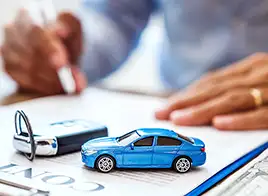
Bankruptcy Does Not Mean Bad Credit Forever
Facing the prospect of bankruptcy can be daunting. Many worry that the negative mark on their credit report - a harsh reality that can last up to 10 years - will prevent them from ever achieving solid financial health again. However, while a bankruptcy will initially sink your credit score, the good news is that you can lay the groundwork for financial recovery immediately. Much like rebuilding credit without a bankruptcy, there are key actions you must take to see tangible improvements.
1. Be Prepared and Consistent: Rebuilding your credit after bankruptcy isn’t a sprint; it’s a marathon. Consistency is key. While the road won’t be easy, sustained effort will lead to improvement over time. Conversely, failing to protect your finances can lead you back to square one.
2. Set a Budget: Successful financial management starts with knowing where your money comes from and where it goes. Setting a budget allows you to track your income, expenses, and savings. Being meticulous with your budget can prevent overspending and ensure that bills are paid on time, giving you a clearer picture of your financial landscape.
3. Never Pay a Bill Late Again: Timely bill payment is one of the most significant factors influencing your credit score. Delinquent payments can dramatically drop your score, making it imperative to stick to your budget and pay bills promptly. Setting reminders or automatic payments can be incredibly beneficial in maintaining this consistency.
4. Build Your Emergency Fund: Emergencies are inevitable, but their financial impact doesn’t have to be devastating. Building an emergency fund gives you a financial cushion for unexpected expenses such as car repairs or medical bills. Start saving as soon as possible; even a small amount saved regularly can grow over time and provide valuable financial security.
5. Review Your Credit Reports: Regularly reviewing your credit reports ensures that all information is accurate, especially in the wake of bankruptcy settlements. You are entitled to one free report per year from each of the three major credit bureaus. Check these reports meticulously and dispute any inaccuracies with the lender or directly with the credit bureau.
6. Watch Your Spending: If you have a credit card, it’s crucial to keep your balance below 30% of your spending limit. Ideally, avoid carrying any balance at all. Controlling your spending helps keep debt manageable and improves your credit utilization ratio, positively influencing your credit score.
7. Get a Secured Credit Card: Without a credit card, rebuilding credit becomes significantly harder. A secured credit card functions similarly to a traditional credit card but requires a cash deposit as collateral. By making timely payments, you can demonstrate financial responsibility, provided these payments are reported to credit bureaus.
8. Explore Other Types of Loans: Taking out an installment loan, such as an auto loan, can be another effective strategy to improve your credit. Making regular, on-time payments can gradually enhance your credit score. This type of loan shows potential lenders that you are capable of managing debt responsibly.
Ready for a New Car? CreditYES Can Help!
If you’re in the market for a new car but worry that your credit will hinder your ability to get approved, CreditYES’s bad credit auto loan program can be your solution. Our program is designed to help you rebuild your credit while putting you in the driver’s seat of a new vehicle. We connect you with local dealerships committed to assisting you throughout the entire process. Best of all, our service is fast, free, and secure. Fill out our online application today, and take a significant step toward rebuilding your financial future and getting behind the wheel of your next car!
By staying committed, being disciplined, and leveraging the right resources, financial recovery post-bankruptcy not only becomes possible but also achievable.

